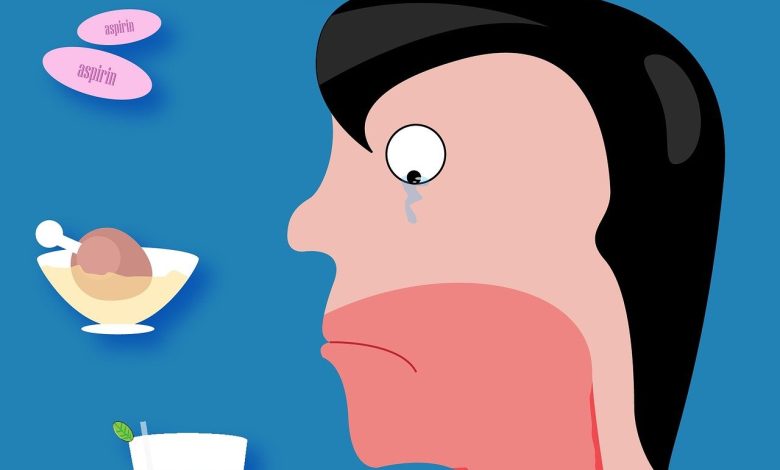The Best Remedies for Soothing a Sore Throat

A sore throat is a common ailment that can make even the simplest tasks, such as swallowing or talking, feel like a daunting challenge. While a sore throat is often a symptom of an underlying illness, finding the right medicine or remedy can provide much-needed relief.
In this article, we will explore various options to determine the best medicine for a sore throat, considering both over-the-counter medications and natural remedies.
What is a Sore Throat?
Before delving into remedies, it’s essential to understand what causes a sore throat. Sore throats can result from viral infections, bacterial infections, irritants, or other factors. Viral infections, such as the common cold or flu, are the most frequent culprits.
Viruses play a predominant role in the development of sore throats, accounting for a substantial majority of cases in both adults and children. In adults, an overwhelming 85% to 95% of sore throats can be attributed to viral infections. The prevalence of viral-induced sore throats is also striking among children aged 5 to 16, with viruses being the causative factor in approximately 70% of cases within this age group. Even among the youngest children, those under 5 years old, viruses remain the primary culprits, responsible for an astonishing 95% of sore throats in this demographic.
Bacterial infections, such as streptococcal bacteria causing strep throat, are less common but more severe.
Over-the-Counter Medications
1. Pain Relievers and Fever Reducers: Acetaminophen, ibuprofen, and aspirin are common over-the-counter medications that can alleviate pain and reduce fever associated with a sore throat. It’s crucial to follow the recommended dosage and consult a healthcare professional if you have underlying health conditions.
2. Throat Lozenges and Sprays: Throat lozenges containing soothing ingredients like menthol or honey can provide temporary relief by numbing the throat. Throat sprays, such as those with benzocaine or phenol, can also help alleviate discomfort.
3. Decongestants: If nasal congestion accompanies your sore throat, decongestants like pseudoephedrine may be beneficial. These medications help reduce swelling in the nasal passages, making breathing easier and relieving throat irritation.
4. Antibiotics (if bacterial infection is confirmed): Antibiotics are effective against bacterial infections, and if a healthcare professional diagnoses a bacterial cause for your sore throat, a course of antibiotics may be prescribed. However, it’s crucial to complete the entire course, even if symptoms improve, to prevent antibiotic resistance.
Natural Remedies:
1. Saltwater Gargle: Gargling with warm saltwater can help soothe a sore throat by reducing inflammation and preventing the growth of bacteria. Mix one teaspoon of salt in a glass of warm water and gargle several times a day.
2. Honey and Warm Water: Honey has natural antibacterial properties and can be soothing for a sore throat. Mix a tablespoon of honey in a cup of warm water or tea. Be cautious not to give honey to children under one year old.
3. Hydration: Staying well-hydrated is essential for overall health and can also help relieve a sore throat. Drink plenty of water, herbal teas, and clear broths to keep your throat moist.
4. Humidifier: Using a humidifier in your room adds moisture to the air, preventing your throat from drying out. This can be especially helpful in relieving discomfort during the night.
5. Ginger Tea: Ginger has anti-inflammatory and antioxidant properties. Prepare ginger tea by steeping fresh ginger slices in hot water. Add honey for sweetness and relief.
6. Rest and Sleep: Giving your body ample rest allows it to focus on healing. Ensure you get adequate sleep to support your immune system in fighting off the infection causing the sore throat.
Preventive Measures
1. Good Hygiene Practices: Practicing good hygiene, such as regular handwashing, can help prevent the spread of viruses and bacteria that cause sore throats.
2. Avoid Irritants: Stay away from smoke and other irritants that can exacerbate a sore throat. If possible, avoid exposure to secondhand smoke.
3. Maintain a Healthy Lifestyle: Eating a balanced diet, exercising regularly, and managing stress contribute to overall well-being and a robust immune system, reducing the likelihood of developing a sore throat.
When to Seek Medical Attention
While most sore throats resolve on their own or with the help of home remedies, certain situations warrant medical attention:
1. Persistent Symptoms: If your sore throat persists for more than a week or worsens over time, consult a healthcare professional.
2. Difficulty Breathing or Swallowing: Seek immediate medical attention if you experience difficulty breathing or swallowing, as these could be signs of a more serious condition.
3. High Fever: If your sore throat is accompanied by a high fever that doesn’t respond to over-the-counter medications, consult a healthcare professional.
Conclusion
In the quest for the best medicine for a sore throat, a combination of over-the-counter medications and natural remedies often proves most effective. However, it’s essential to tailor your approach based on the specific symptoms and underlying causes of your sore throat.
In addition,, adopting preventive measures and recognizing when to seek medical attention are crucial steps in maintaining overall throat health. By arming yourself with knowledge and taking proactive steps, you can navigate the discomfort of a sore throat and work towards a speedy recovery.





